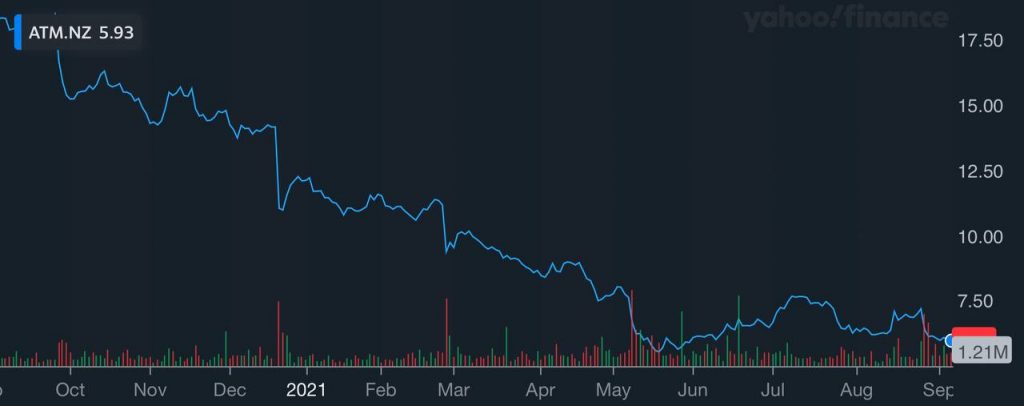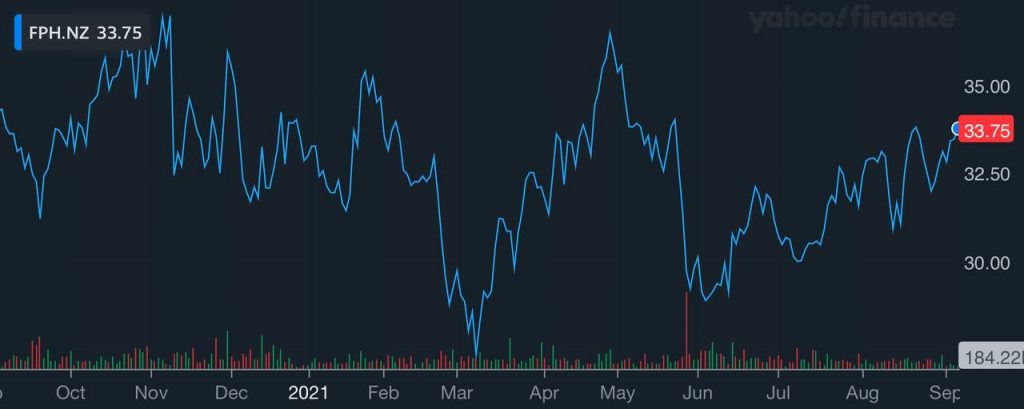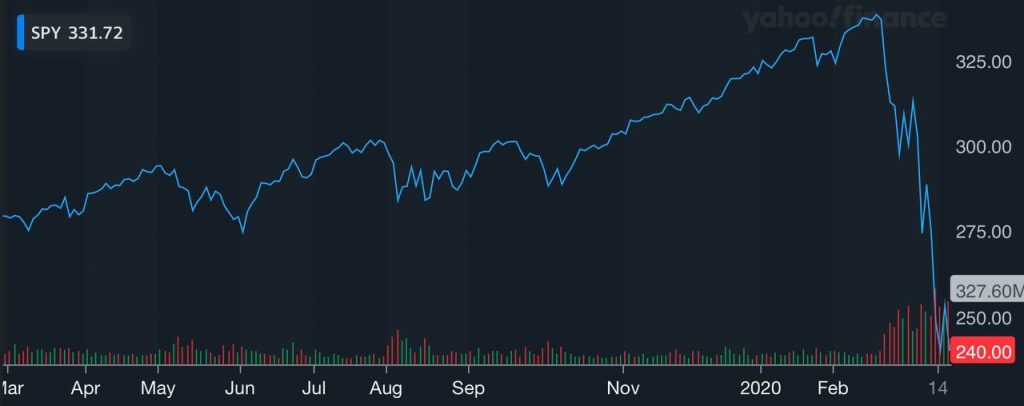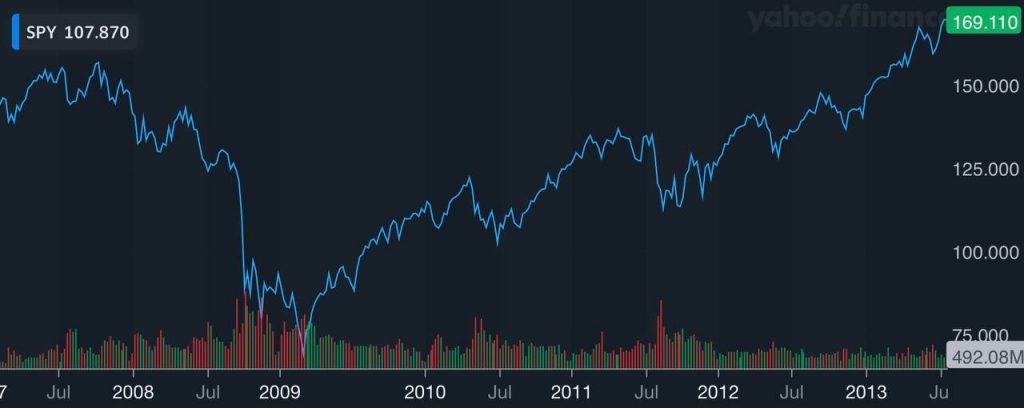
Many of us have money put aside for the short-term. This could be money that you’re saving to buy a house, for a wedding, to pay for education, or simply kept as part of an emergency fund. So what’s the best place to invest the money that you’ll need in a few months or the next couple of years?
1. Background
There have been a few social media posts recently asking for tips on where to invest money for the short-term, like the following post on a Facebook group:

Unfortunately when you ask a bunch of strangers on the internet for investment advice, you’ll get tons of different answers (82 in this case to be exact).
ETFs and index funds were a very popular suggestion:
It all depends on how desperately you need to cash out after the year is up. If you definitely have to cash out then commercial property shares or ETF’s is probably the best bet.
S&P 500
Some people suggested buying shares in individual companies:
Mainfreight
Rocket Lab
Others warned against investing in shares:
None. Stocks are not a one year thing to be honest.
One year is a bit short dude, for all you know the market could drop 50% in that time.
A few even suggested investing in cryptocurrency:
Crypto for me at the moment.
DeFi farming crypto, just to get the interest
This wide range of answers is not particularly helpful as one smart commenter pointed out:
So when some poor guy who has no clue about how to invest asked on an “investor group” page how he should blow $1000 he gets advice ranging from the possibly good all the way through to criminally absurd. Tell me how is he meant to sift through that crap and learn anything from it.
Fortunately the person who posted that question on Facebook is only investing $1,000, so he’s unlikely to face any severe consequences if he does get his investments wrong. But there are others out there dealing with much larger amounts of short-term money:

So what options are best for investing money you’ll need in the short-term? Let’s have a look at the facts.
2. The problem with shares, and funds that invest in them
Shares are volatile. Their prices are just as likely to go down or sideways in the short-term as they are likely to go up. Just look at a2 Milk – a star performer in the past, but a totally ugly performer over the last year. Certainly not something you’d want to have had put some short-term money in.

You could argue that I should just pick a better company to invest in. But this is hard to do – no one can tell the future movement of a company’s share price, and I doubt the 0900 PSYCHIC hotline gives out stock tips. Nor are the best companies immune from going down in price. Fisher and Paykel Healthcare has been a solid investment in recent times, but has just swung up, down, and sideways over the last year. Its performance would likely disappoint those investing for such a short timeframe.

You may turn to index funds in order to diversify your investment in case you pick a bad company, like this Facebook commenter suggested:
S&P500 so it covers most stocks so if one goes down you don’t lose much cause any of the stocks could go up and cover it
Unfortunately buying index funds containing hundreds of companies does not provide immunity from market dips either. Financial markets can move up and down like tides – taking all companies along with it, no matter whether the companies are good or bad. The below chart shows the share price movement of SPY (a S&P 500 index fund) where you’ll see that the fund’s price went down by over a third in just one month in Feb/March 2020 thanks to the global pandemic. Having your investment diversified throughout 500 companies clearly didn’t help in this case.

These kind of market dips happen on a regular basis:
Since 1960 the US market has fallen by more than ten percent 31 times. Eight of those times it’s been down more than 20 per cent, and three of those times (1974, 2002 and 2009) more than 40 per cent.
Mark Lister, Craigs Investment Partners
However, we were perhaps fortunate to see the market rebound so quickly in 2020, with SPY’s price back to its previous highs within about 5 months (though this doesn’t factor in any foreign exchange movements which can add another layer of volatility when investing in shares). In this case it might have been possible to slightly delay the purchase of your house (or whatever you’re using your short-term money for), and have waited for the markets to recover.
But 2020 is an exceptional case, rather than the norm. Past market dips have taken much longer to recover. If you were unlucky enough to invest in SPY in October 2007, it would have taken until about April 2013 for the price of your shares to fully recover!

In summary, investing in shares for the short-term will put you at a greater risk of losing capital due to volatility. And like with gambling, the potential upside probably won’t make you rich enough to change your life. A long-term view is needed to make the most from shares – to give sufficient time to recover in the case of any dips, and to take advantage of compounding returns.
3. What’s the alternative?
Bank deposits are better suited for short-term money, like these clever Facebook commenters suggested:
Cash in the bank unless you want the possibility of not being able to buy a new house.
Term deposits; be safe rather than sorry. Have lived through 2 worldwide financial crashes and have even seen a solicitors fund embezzled. Risking needed capital for a gain is just not worth it.
Can’t do much in 9 months for money that you NEED not to lose value, too risky to put it anywhere but the bank in a term deposit
Banks deposits can come in the form of:
- Notice Saver accounts – These offer a higher interest rate than a normal savings account, but typically you need to give 32-90 days notice to the bank to withdraw your money. Offered by Kiwibank, Westpac, Heartland, and Rabobank.
- Term Deposit – These offer an even higher rate of interest, but require you to commit your money for a certain amount of time (e.g. for 6 months). Offered by pretty much all banks.
- Cash Funds – These are like the funds/ETFs that you can find on Sharesies, InvestNow, or Kernel. But instead of investing in shares, these funds invest in cash and cash equivalents. They offer reasonable returns relative to other bank savings products, and you can withdraw them at any time, making them more flexible than term deposits or Notice Savers. Examples are the Smartshares NZ Cash ETF and the AMP NZ Cash Fund, which are both available through InvestNow.
Further Reading:
– Bonus Saver vs Notice Saver vs Term Deposit – Which savings product is right for you?
– Smartshares vs AMP vs Milford vs Nikko AM – Cash fund shootout
Before you close this article in disgust over my love for bank deposits, here’s my answer to some common concerns surrounding bank deposits, and why I still think they’re a good idea:
Aren’t the returns low?
Yes they are low, and you aren’t going to make a lot from sticking your money in the bank (Notice Saver rates are currently about 1%, while 1 year term deposit rates are currently sitting around 1.5%). But making money is not the point. While the potential upside with bank deposits is low, the potential downside is very low – i.e. there is a very low likelihood you’ll lose money. Bank deposits serve to protect your capital (being super stable), so that when you go to withdraw your investment you are almost certain to withdraw the same amount of dollars you put in.
Won’t inflation eat away at my money?
Yes, you will probably lose some purchasing power to inflation. But it’s better to lose 5% in purchasing power than to potentially lose 50% of your capital from investing in shares. A 5% loss is much easier to make up than a 50% one! For example, take $200,000 as a 20% deposit for a $1 million house. If that gets cut to $100,000 your buying ability would be reduced to a $500,000 house – time to consider moving to Invercargill! While if house prices inflate by 5%, you would need to save an extra $10,000, which is a lot more achievable.
I don’t have enough money for a house deposit – I want to invest in shares so that I can buy a house sooner!
If you’re still several years away from buying a house, shares might work out well in growing your deposit. But if you’re looking to buy in the shorter-term, consider the downside risk of shares – there is no guarantee that shares will perform better than bank deposits, and they can easily underperform if they have a bad year. Shares are not a sure thing to accelerate your journey onto the property ladder.
Isn’t it better to make the most of my money?
There is no need to fully utilise every dollar you have into growth assets like shares. It’s ok for things to be under-utilised – just like all the cars parked on the side of your street, the clothes in your wardrobe, or empty rooms in your parents’ house that could be rented out. There will be plenty of time in your life to invest in shares once you’re in a position to do so long-term.
But bank deposits aren’t exciting!
If you absolutely must invest in shares or crypto to fulfil your need for excitement, perhaps it’s time to get some new hobbies. Or why don’t you keep a separate bucket of play money in Sharesies so that you can channel your inner Wolf of Wall Street?
Conclusion
It is concerning that so many people on social media groups suggest shares as a suitable short-term investment, but each to their own. There is nothing stopping you from trying to optimise your short-term money by investing it in shares or funds, but do so at your own risk. The potential upside probably isn’t going to be life changing, compared with the potential downside which could result in a lot of stress. Are you prepared to gamble away your chances of buying a house just for the potential to squeeze out an extra few percent in gains?
Instead strong consideration should be given to sticking your money in a boring bank deposit. Investing is not always exciting, and there is no need to make every dollar in your possession work hard for you. You won’t make much money, but at least your capital will be protected for when you take it out for your house deposit, wedding, emergency, or whatever you choose to spend your money on.
Follow Money King NZ
Join over 7,500 subscribers for more investing content:
Disclaimer
The content of this article is based on Money King NZ’s opinion and should not be considered financial advice. The information should never be used without first assessing your own personal and financial situation, and conducting your own research. You may wish to consult with an authorised financial adviser before making any investment decisions.
Hi, Regarding this article and the recent failure of several global banks. What is the “safest” way to use save cash?
The protection of capital is the main goal but deposits in banks in NZ are not guaranteed by the Govt and are not insured however funds invested are (all to my knowledge). So a term deposit on InvestNow is a more protected investment than a TD direct with Heartland. A notice saver with Kernel is safer than a notice saver with Kiwibank also. All of this because of the “Custodian, Beneficial Owner” relationship thing. Am I right?
To my mind I should move to savings and cash products that are offered by these non-bank investment companies. Even though some of these products are Heartland (for example) products re-packaged. What are your thoughts on this? Thanks for you reply.
Hi Tama, that is correct that NZ bank deposits are not guaranteed or insured.
However, funds invested through the likes of InvestNow or Kernel aren’t guaranteed or insured either. Custodians exist to protect you if your investment platform goes under, but do not protect you if the underlying investment goes bad. For example if you invested in a Heartland TD via InvestNow, the custodial arrangements mean your money is safe if InvestNow shuts down, but would not protect you if Heartland (the issuer of your TD) were to get into trouble.
So it’s no riskier or safer to invest in a cash product via another platform versus going direct. Keep in mind NZ banks are more stable and better regulated than the banks that have recently failed. But if you’re still concerned you could always split your cash between multiple banks.
Can you give me your thoughts on Senior Trust as an investement